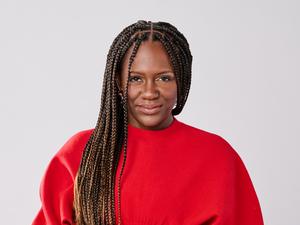
Black investors continue to face challenges breaking into the venture capital world, but there are some signs of optimism, according to a report from BLCK VC.
The San Francisco-based nonprofit organization surveyed more than 200 Black investors and used Crunchbase research and its data to compile its second annual report on the state of Black representation in venture capital.
Founded in 2017 by Sydney Sykes and Frederik Groce, BLCK VC widened its lens this year beyond the partner level to include junior and midlevel positions.
Black investors make up only 4% of venture capital investors in the U.S., according to the report, while Black women make up only 1%. In 2020, only 3% of partners were Black, according to BLCK VC's previous report.
One sign of optimism comes at the junior and midlevels, where there's a greater diversity in educational backgrounds than at the partner level. While nearly half of all Black partners attended Ivy League universities or Stanford, that only holds true for around one-quarter of lower level talent.
"This shift in educational background is a positive development within the industry, as it can lead to a more diverse range of perspectives and ideas as those junior and mid-level talents reach partner roles," the report said. But "efforts must be made to support the advancement of these individuals within the industry and to provide them with equal access to resources and opportunities."
A lack of opportunity often leads Black investors to launch their own solo venture firms, but they still face persistent challenges.
Black-led funds can struggle to reach their targets, and on average raise 35% smaller funds than they originally intended.
"To truly expand the reach and influence of the Black venture capital community, Black fund managers must raise more significant funds to focus on later-stage investments and build a strong pipeline of companies that can scale and drive returns," the report said. "Having more Black fund managers in later-stage investments may be a key step toward getting more funding for Black founders."
Cake Ventures founder Monique Woodard closed her first fund at the end of 2022 with $17 million from Melinda French Gates' Pivotal Ventures, Cendana Ventures, Screendoor, Plexo Capital, Foundry Group, Bank of America and other investors.
That was about 15% lower, or $3 million less, than she intended, Forbes reported in January.
Woodard echoed the findings of the report.
"It remains challenging for Black VCs to be hired or promoted to the senior VC ranks of general partner and managing director. Those of us who are more senior and want bigger roles and larger upside have had to strike out and raise our own funds — a challenging prospect," Woodard told me. "If legacy firms do not create a path via succession planning or promotion, senior Black VC leadership will remain underrepresented in these firms."
She's optimistic about the opportunities that exist for Black venture partners with funds to deploy, and that will extend to founders.
"A significant amount of that will be invested in diverse founders and teams," Woodard said. "Some of the best companies are started during challenging economic times and companies led by diverse teams have proven themselves to be extremely resilient — the performance of these investments will be a bright spot for both investors and founders."
Black investors are more likely to fund female and Hispanic founders, the BLCK VC report showed. Black women were also more than twice as likely than Black men to invest in companies founded by Black women.
"The lack of representation ultimately impacts the amount of funding allocated to Black women entrepreneurs which, according to Crunchbase, received only 0.34% of venture capital in the U.S. in 2021. By overlooking Black women in the venture ecosystem, venture capitalists are missing out on the next generation of successful start-ups," the report said.








